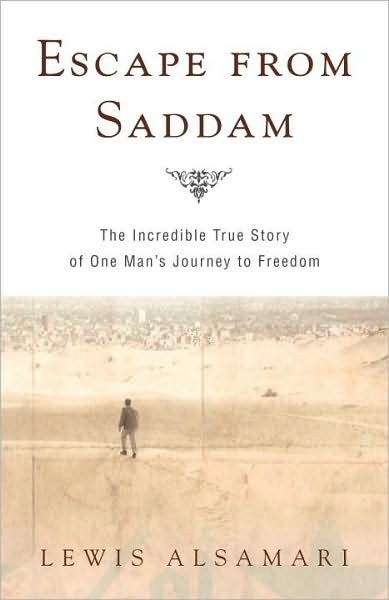
Escape From Saddam PDF
Preview Escape From Saddam
At the age of seventeen, Lewis Alsamari was conscripted into Saddam Hussein’s army. The training was brutal, with discipline enforced by regular beatings, and desertion punishable by mutilation or imprisonment. Somehow Lewis made it through and, thanks in part to his fluent English, was soon offered a post in Iraqi military intelligence. The job would have made him powerful, comfortably wealthy . . . and a cog in Saddam Hussein’s massive machine of terror.
Unable to accept becoming a member of Saddam’s secret police, yet knowing that turning down this “honor” would be considered treasonous, Lewis made plans to flee Iraq. His escape was fraught with peril–he was shot, detained at borders, even pursued by hungry wolves across the desert–but the teenager made his way to Jordan, then Malaysia, and finally to England, where he was granted political asylum.
Lewis began building a life for himself, even falling in love and getting married. But he was haunted by thoughts of the loved ones he left behind in Iraq, his uncle’s words echoing in his ears: we are sending you to freedom so that one day you may rescue us from this place.
One day, shocking news arrived: because of his escape, Lewis’s family–including his mother and sister–had been interrogated, beaten, and thrown into prison. Frantic with guilt and worry, Lewis was forced to steal the thousands of dollars he needed to buy their release and smuggle them out of Iraq. Then, accompanied by his wife, he embarked on a desperate journey in hope of bringing his family to freedom.
Escape from Saddam is a powerful nonfiction thriller that, even as it plunges the reader into a netherworld of crooked border police, military checkpoints, counterfeiters, and smugglers, provides a fascinating window into a totalitarian regime. It is also a remarkably inspirational story of a resourceful young man who refused to accept his fate . . . and then risked everything he’d achieved to save his family.
From the Hardcover edition.
From Publishers WeeklyFor Alsamari, an Iraqi-born first-time author best known for playing the lead 9/11 hijacker in the movie United 93, real life had already proved dramatic and terrifying, as this gripping memoir wastes no time in conveying. Raised for several years in Manchester, England, Alsamari was unexpectedly sent back to Baghdad by his father a few years before the first Gulf War and he spends the next 10 years dreaming of a way out. Induction in the army in 1994—a punishing experience that the author describes in characteristically straightforward and persuasive prose—leads to a lifelong sentence: recruitment into Saddam's military intelligence apparatus. With the help of his beloved uncle Saad, Alsamari begins the long and perilous journey to political asylum in England, where he eventually engineers the rescue of his family, now gravely endangered by his desertion. The increasingly breathless account—filled with the best and worst of human actions—comes across in vivid and telling scenes spanning Iraq, Jordan, Malaysia and the U.K. Alsamari's moving personal story is representative of a more general plight, which, as broached in an eloquent and thoughtful epilogue, has only grown more complex after 9/11. (Mar.)
Copyright © Reed Business Information, a division of Reed Elsevier Inc. All rights reserved.
Alsamari is a London-based actor who played one of the hijackers in the docudrama United 93. He was born in Iraq but raised in Britain. At the age of 12, he temporarily returned to Iraq with his father and wound up trapped there. At 18, after a harrowing period as a military conscript, he deserted, escaped to Jordan, and returned to Britain. When he discovered that family members were enduring prison and torture by Saddam’s henchmen to pay for his treason, he launched a complicated scheme to rescue them. Alsamari’s recounting of his experiences reads like a fast-paced international thriller, but this is a real-life saga that magnifies the tension, danger, and poignancy of the story. Almasari’s experience in the Iraqi military is a study in the deliberate practice of brutality and sadism; his anecdotes about coping with the Baathist bureaucracy combine elements of farce and frustration; and, finally, his efforts to rescue his loved ones move across vast expanses of territory and include forgeries, smuggling, and constant fear. A well-written, frequently exciting, and ultimately satisfying true story. --Jay Freeman
